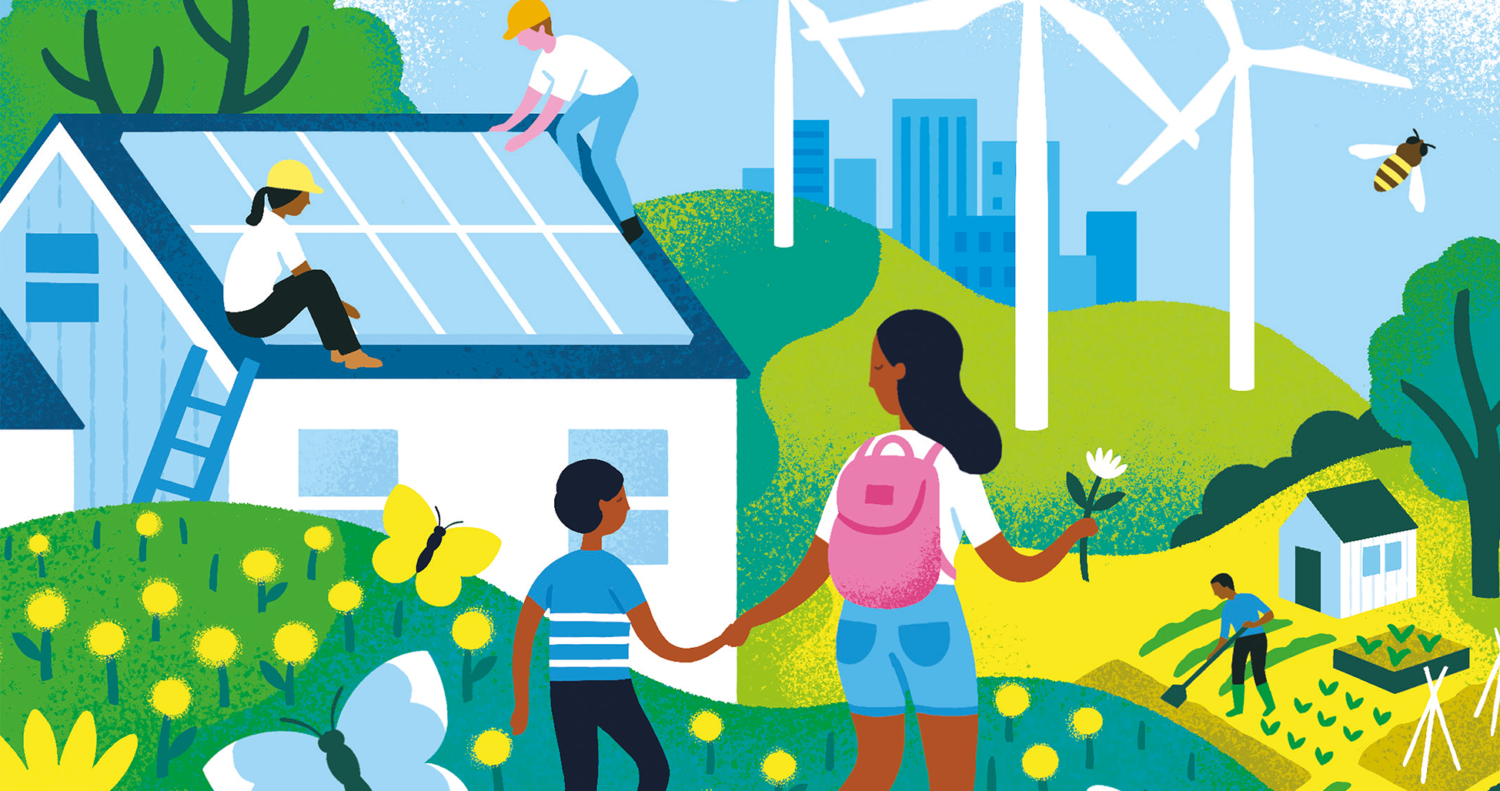For the workers
For decades in the global north, environmentalism has been framed as a white, middle-class preoccupation. This framing couldn’t be further from the truth, argues Clare Hymer.
For decades in the global north, environmentalism has been framed as a white, middle-class preoccupation. Environmental destruction has been presented as a problem caused by individuals rather than systems, to be addressed by those with the time and means to make lifestyle changes: from buying the ‘right’ kinds of foods and household products to using more eco-friendly – and often more costly – forms of transport.
This framing couldn’t be further from the truth. Environmental degradation and climate breakdown are at their core class issues. It is the super rich who continue to prop up the fossil fuel industry and profit from emissions causing killer floods, devastating drought and murderous hurricanes – extreme weather events which disproportionately punish the global poor. It is the capitalist system that prioritises profit for the few while the global working class suffer.
The solutions to the climate crisis we need are therefore those which transfer power and wealth to the many. This is a core strength of the ‘Green New Deal’ – it is a framework to articulate the ambition to put a stop to climate breakdown while guaranteeing economic justice for all. The Green New Deal recognises that the immiseration of the working class shares a root with the ruination of the climate. These dual crises must be addressed as one.
We need a ‘new deal’ for workers and communities in the UK and globally. This must include a renaissance in democratic ownership to put power over the economy in the hands of the many. It has to include rights, dignity and control in work, and eliminate the possibility of poverty through un(der)employment. It must include the provision of services to guarantee everybody’s basic needs, from education to childcare to transport to food.
To make sure we have a future in which to enjoy this ‘new deal’, it must be ‘green’ to the core, embedding decarbonisation at every level of the economy. We must reduce aggregate energy demand significantly to speed up the transition, meet the technical realities of renewable storage capacity, and limit the extraction of minerals currently driving conflict and pollution for poor communities in the global south. Reducing energy demand must be man-aged through structural changes to the economy which build public luxury for all over private luxury for some. Imposing eco-austerity on the working class misses both the point and the scale of change required.
Over the past few months the Green New Deal’s principles – empowering the working class and decarbonising the economy – have been shown to be popular. Now these must be substantiated with policy proposals: from founding municipal energy companies managed democratically to accelerate the switch to renewables locally while ensuring bills stay low and energy isn’t wasted, to demanding a four-day week to herald a revolution in work in order to reduce energy demand (less commuting, less ready meals, less unnecessary production) while improving conditions for the same pay. Developing these proposals, and building power to bring them to life, are the tasks at hand.
This article is part of a Fabian debate on Labour and the climate emergency. Read the other contributions here:
1. The gloves are off
Ed Miliband MP argues the climate change battle is one we can’t duck because of the disaster that confronts the world if we do not act. But it is also an opportunity to reimagine our world. The Labour party can and should seize this moment.
2. Red and green values
A Labour government that is committed to restructuring and decarbonising our economy to tackle the climate emergency must put trade unions and workers at the heart of its approach, writes Nadia Whittome.
3. Winning over the voters
Commitments need to be followed by actions. So how will Labour find the policies that meet its ambitious carbon reduction targets and attract voters to the party too, asks Melanie Smallman.
4. Actions speak louder than words
When it comes to the climate emergency, actions speak louder than words. Sue Hayman MP, Judith Blake and Alex Sobel MP write about the steps that need to be taken by local authorities and parliament.
5. Seeking green solutions
Green issues are creating more concern than ever before with action needed across a number of fronts. We know the government must act now, but what should this look like in practice? Stephanie Hilborne, Alan Whitehead MP, Noga Levy-Rapoport and Farhana Yamin weigh in.

